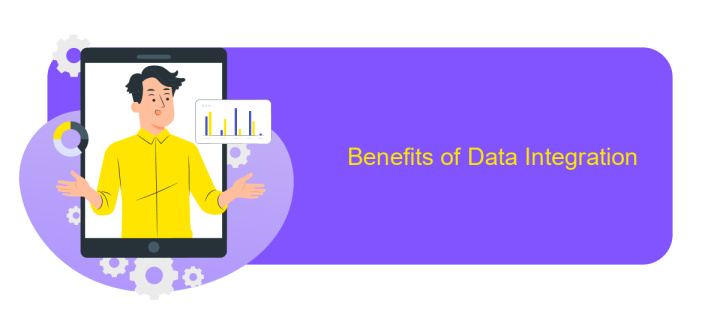Data Integration for My Leads
In today's data-driven world, integrating information from various sources is crucial for effective lead management. "Data Integration for My Leads" explores the strategies and tools necessary to unify disparate data, providing a comprehensive view of potential customers. This article delves into best practices, challenges, and solutions to help businesses streamline their lead management processes and enhance decision-making.
Introduction
In today's rapidly evolving digital landscape, businesses are inundated with vast amounts of data from various sources. For companies focused on lead generation, efficiently integrating this data is crucial for streamlined operations and informed decision-making. Data integration for leads involves consolidating data from disparate systems to provide a comprehensive view of potential customers, thereby enhancing the ability to nurture and convert leads.
- Centralizing data from multiple channels such as social media, email campaigns, and CRM systems.
- Ensuring data accuracy and consistency to avoid redundancies and errors.
- Utilizing advanced analytics to gain insights and improve lead scoring.
Effective data integration strategies can significantly impact a company's bottom line by enabling more targeted marketing efforts and improving sales team efficiency. As businesses continue to adopt more sophisticated technologies, the importance of robust data integration systems cannot be overstated. By leveraging integrated data, companies can better understand their leads, personalize their outreach, and ultimately, drive more successful conversions.
Data Integration Challenges

Data integration presents several challenges, particularly when dealing with disparate data sources and formats. One primary issue is data inconsistency, where different systems may store data in various formats, leading to difficulties in merging and analyzing it. Additionally, data quality is often compromised due to errors, duplicates, and missing information, which complicates the integration process. Ensuring real-time data synchronization across multiple platforms can also be a complex task, requiring robust solutions to maintain data accuracy and timeliness.
Another significant challenge is the technical complexity involved in setting up and managing integrations. Many businesses lack the in-house expertise to efficiently handle these tasks, necessitating the use of specialized tools and services. ApiX-Drive, for instance, offers a user-friendly platform that simplifies the integration process by allowing users to connect various applications and automate data flows without extensive coding knowledge. This not only reduces the technical burden but also ensures that data is consistently and accurately integrated, enhancing overall data management and decision-making capabilities.
Data Integration Solutions

Data integration is a critical component for managing leads effectively, ensuring seamless communication and data flow between various systems. By integrating data from different sources, businesses can gain a comprehensive view of their leads, streamline processes, and enhance decision-making.
- ETL (Extract, Transform, Load) Tools: These tools help in extracting data from various sources, transforming it into a usable format, and loading it into a central database.
- API Integrations: APIs allow different software systems to communicate with each other, enabling real-time data exchange and synchronization.
- Data Warehousing: A data warehouse consolidates data from multiple sources into a single repository, making it easier to analyze and report on lead information.
- iPaaS (Integration Platform as a Service): iPaaS solutions offer cloud-based integration services that connect different applications and data sources seamlessly.
- CRM Integrations: Integrating your Customer Relationship Management (CRM) system with other tools ensures that all lead data is centralized, up-to-date, and easily accessible.
Implementing these data integration solutions can significantly improve the efficiency and effectiveness of lead management. By leveraging the right tools and technologies, businesses can ensure that they have accurate, comprehensive, and actionable data at their fingertips, ultimately driving better outcomes and growth.
Benefits of Data Integration

Data integration is a powerful tool for managing leads effectively. By consolidating information from various sources, businesses can gain a comprehensive view of their potential customers. This holistic approach allows for more informed decision-making and strategic planning.
Moreover, data integration streamlines operations by reducing the time and effort required to gather and analyze information. This efficiency not only saves resources but also enhances the accuracy and reliability of the data being used.
- Improved data accuracy and consistency
- Enhanced customer insights and segmentation
- Increased operational efficiency
- Better decision-making capabilities
- Reduced data silos and duplication
Ultimately, the benefits of data integration extend beyond mere convenience. It empowers organizations to create more targeted marketing campaigns, foster stronger customer relationships, and drive higher conversion rates. In a competitive market, these advantages can make a significant difference in achieving business success.
Conclusion
In conclusion, effective data integration is essential for optimizing lead management and ensuring seamless workflows. By consolidating data from various sources, businesses can achieve a unified view of their leads, enabling better decision-making and more personalized customer interactions. Utilizing tools like ApiX-Drive can significantly streamline this process, offering automated integrations that save time and reduce the risk of errors.
As organizations continue to grow and adopt more digital tools, the importance of robust data integration solutions will only increase. Implementing a reliable service such as ApiX-Drive can provide the necessary infrastructure to handle complex data flows efficiently. By doing so, businesses can maintain data integrity, improve lead conversion rates, and ultimately drive growth. Investing in the right integration solutions today will pave the way for a more connected and data-driven future.
FAQ
What is data integration for leads?
Why is data integration important for lead management?
How can I automate data integration for my leads?
What are the benefits of using an integration service like ApiX-Drive?
Can I customize the data integration process to fit my specific needs?
Do you want to achieve your goals in business, career and life faster and better? Do it with ApiX-Drive – a tool that will remove a significant part of the routine from workflows and free up additional time to achieve your goals. Test the capabilities of Apix-Drive for free – see for yourself the effectiveness of the tool.

